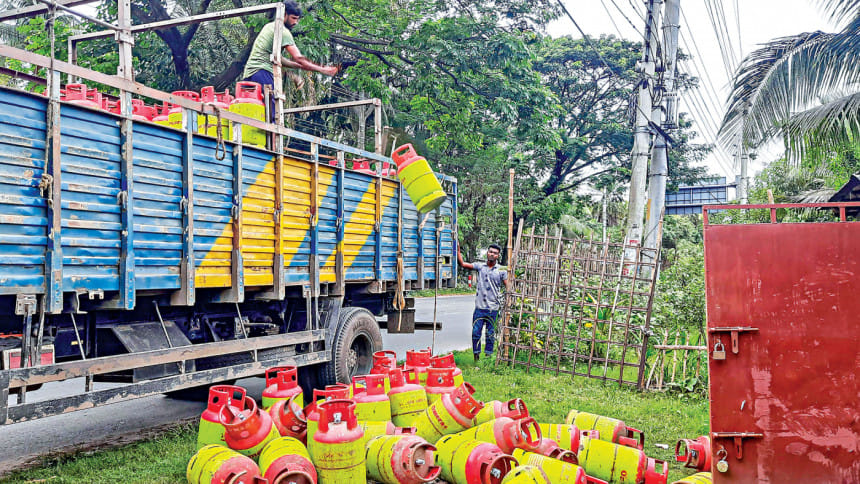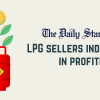LPG imports fall amid dollar shortage

Imports of liquefied petroleum gas (LPG) declined due to problems in opening letters of credit (LCs) amidst the ongoing dollar crisis, operators said.
They said monthly imports of LPG, used mainly by households for cooking, dropped from 1.4 lakh tonnes to nearly 1 lakh tonnes since July this year.
Bangladesh's annual demand for LPG at present is about 14 lakh tonnes. Only two percent of that is locally-produced while the remaining 98 percent is met by imports, according to operators.
However, the shortage in terms of supply is expected to be offset by the slowdown in LPG demand in rural areas and among industries due to the prevailing economic vulnerabilities, according to market insiders.
"LPG business is trending downwards since we cannot import sufficiently due to problems in opening LCs," said Jakaria Jalal, executive director of Bashundhara LP Gas.
He added that the sector was reeling from global and domestic economic instability.
Sameer Haque, director of Delta LPG, said LPG imports fell to an average of 1 lakh tonnes per month during the last four months from between 1.3-1.4 lakh tonnes before July of this year.
He said declining imports slightly disrupted the supply chain.

However, Tanzeem Chowdhury, chief executive officer of Omera LPG, said his company managed to import sufficient LPG because banks were willing to cooperate.
"We are supplying to local companies so that they do not face trouble running their business as LPG is an essential product for Bangladesh," he said.
M Muntasir Alam, chief commercial officer of Beximco LPG, opined that the government should set a reasonable price so clients do not need to overspend on LPG cylinders and middlemen can also make minimum profits.
Retailers and firms said the decline in LPG imports had no impact on prices.
Despite the fall in imports, Md Nurul Amin, chairman of the Bangladesh Energy Regulatory Commission (BERC), said there is no possibility of an immediate supply deficit.
"There were sufficient reserves at the business end," he said, adding that BERC is in touch with companies in a bid to maintain the supply chain.
Amin added that BERC fixes prices of LPG bottles, ensuring both dealers and retailers make profits of Tk 35 and Tk 50 respectively from each 12-kg bottle.
"We decided on this price after discussion with stakeholders to ensure a win-win situation for all," he noted.
However, Omor Faruque, an LPG cylinder retailer in Dhaka's Uttara area, said they could never purchase LPG from companies and dealers at the BERC-fixed price.
Instead, some charge around Tk 50-80 more than the price fixed by BERC.
He said this forced him to sell LPG for around Tk 80 higher than his purchase price in order to cover rental costs and ensure a profit margin.

 For all latest news, follow The Daily Star's Google News channel.
For all latest news, follow The Daily Star's Google News channel. 







Comments